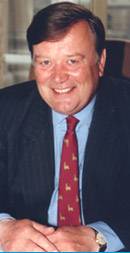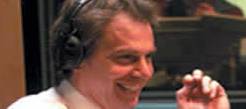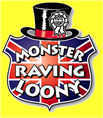The Pupiline Guide To The Main UK Political Parties If you thought that a General Election in the is a straight fight between the Conservatives and Labour, think again as there are a few more parties than that who seek to get elected to Westminster. Hereís a quick guide to the main ones:  Currently the official Opposition, having the second largest number of seats in the House of Commons, and hoping to become the next UK Government. This Party was once a "one-nation" pragmatic Party but Margaret Thatcher turned it into a right-wing free market Party. Over a period of 18 years, latterly under John Major, they formed the government, but suffered a series of Currently the official Opposition, having the second largest number of seats in the House of Commons, and hoping to become the next UK Government. This Party was once a "one-nation" pragmatic Party but Margaret Thatcher turned it into a right-wing free market Party. Over a period of 18 years, latterly under John Major, they formed the government, but suffered a series of  financial and sexual scandals, leading to defeat in the 1997 General Electi financial and sexual scandals, leading to defeat in the 1997 General Electi on. Under a new leader, William Hague, they lost the 2001 election. What it currently stands for will be mainly down to the new leader. Watch this space for the result! The Tories were completely wiped out in Scotland and Wales in 1997. However they now have some seats in the Scottish Parliament and Welsh Assembly. 1 Conservative MP was elected in Scotland, in the recent 2001 election and they had 2 MSPís elected in the Euro election. They're also very strong in Local government. on. Under a new leader, William Hague, they lost the 2001 election. What it currently stands for will be mainly down to the new leader. Watch this space for the result! The Tories were completely wiped out in Scotland and Wales in 1997. However they now have some seats in the Scottish Parliament and Welsh Assembly. 1 Conservative MP was elected in Scotland, in the recent 2001 election and they had 2 MSPís elected in the Euro election. They're also very strong in Local government.
The only Party which campaigns about the environmental as itís main policy, but they have so far failed to elect any Members of Parliament in Westminster. The only successes are in the regional assemblies and local government elections.  Currently the Government of the day, under their leader, Prime Minister Tony Blair. This is a redesigned Party, which was originally Socialist. Clement Attlee led the former Labour Party's most successful term of government after the Second World War. During this period they gave "public ownership" (Nationalisation) to major industries and utilities and created the National Health Service - medical services for all for free. During the 1980's the Labour Party became more and more left-wing, to the extent that their support dwindled to the point where it was thought that they would never become the main party. Neil Kinnock began the reforms and John Smith carried on the changes until his untimely death. His successor, Tony Blair reformed the party, now unofficially known as "New Labour". This new image, together with the public's disgust with the Tories in 1997 and 2001, resulted in a Currently the Government of the day, under their leader, Prime Minister Tony Blair. This is a redesigned Party, which was originally Socialist. Clement Attlee led the former Labour Party's most successful term of government after the Second World War. During this period they gave "public ownership" (Nationalisation) to major industries and utilities and created the National Health Service - medical services for all for free. During the 1980's the Labour Party became more and more left-wing, to the extent that their support dwindled to the point where it was thought that they would never become the main party. Neil Kinnock began the reforms and John Smith carried on the changes until his untimely death. His successor, Tony Blair reformed the party, now unofficially known as "New Labour". This new image, together with the public's disgust with the Tories in 1997 and 2001, resulted in a  Labour Landslide, meaning they've got far more seats in Parliament than any other party, though not more votes. Tony Blair was the first ever, Labour Leader to secure two successive terms in office. Labour Landslide, meaning they've got far more seats in Parliament than any other party, though not more votes. Tony Blair was the first ever, Labour Leader to secure two successive terms in office.
 After the War, the Liberal Party (as it was then known) only had half a dozen or so MPs - a shadow of the one-time great Liberal Party of Gladstone and David Lloyd George. As British politics split between the two parties of Labour and Conservative, The Liberals saw themselves as a middle way. In the 1980s, a group of disaffected Labour MPs broke away and formed the SDP (Social Democratic Party). The SDP and the Liberals found that they were broadly campaigning for the same things and this led to the formation of the SDP-Liberal Alliance, which eventually led into a combining After the War, the Liberal Party (as it was then known) only had half a dozen or so MPs - a shadow of the one-time great Liberal Party of Gladstone and David Lloyd George. As British politics split between the two parties of Labour and Conservative, The Liberals saw themselves as a middle way. In the 1980s, a group of disaffected Labour MPs broke away and formed the SDP (Social Democratic Party). The SDP and the Liberals found that they were broadly campaigning for the same things and this led to the formation of the SDP-Liberal Alliance, which eventually led into a combining  of the two Parties - hence today's Liberal Democrats. Currently led by Charles Kennedy, they now see themselves as being to the "left" of both New Labour and the Conservatives. As they offer more radical public spending plans, and are honest enough to say, in their Manifesto, that they intend to increase income tax to pay for improvements in the National Health Service and education. They currently are the third largest Party in the House of Commons and have loads of local councillors. of the two Parties - hence today's Liberal Democrats. Currently led by Charles Kennedy, they now see themselves as being to the "left" of both New Labour and the Conservatives. As they offer more radical public spending plans, and are honest enough to say, in their Manifesto, that they intend to increase income tax to pay for improvements in the National Health Service and education. They currently are the third largest Party in the House of Commons and have loads of local councillors.
Founded by the late Screaming Lord Sutch, fighting for such things as all-day pub opening and plan to hire Japanese origami experts to fold the Millennium Dome roof into the shape of an elephant The Welsh Nationalist Party, with strong representation in the Welsh Assembly, the devolved government of Wales. One of their main aims is for an Independent Wales, not part of Great Britain. Strongly represented in the Scottish Parliament, the devolved government of Scotland, and the main challengers to Labour in Scotland. One of their main aims is for an Independent Scotland, not part of Great Britain. This Party is a single-issue Party, i.e., get Britain out of the European Union.
- The Pupiline Team
|
|

 Currently the official Opposition, having the second largest number of seats in the House of Commons, and hoping to become the next UK Government. This Party was once a "one-nation" pragmatic Party but Margaret Thatcher turned it into a right-wing free market Party. Over a period of 18 years, latterly under John Major, they formed the government, but suffered a series of
Currently the official Opposition, having the second largest number of seats in the House of Commons, and hoping to become the next UK Government. This Party was once a "one-nation" pragmatic Party but Margaret Thatcher turned it into a right-wing free market Party. Over a period of 18 years, latterly under John Major, they formed the government, but suffered a series of  financial and sexual scandals, leading to defeat in the 1997 General Electi
financial and sexual scandals, leading to defeat in the 1997 General Electi on. Under a new leader, William Hague, they lost the 2001 election. What it currently stands for will be mainly down to the new leader. Watch this space for the result! The Tories were completely wiped out in Scotland and Wales in 1997. However they now have some seats in the Scottish Parliament and Welsh Assembly. 1 Conservative MP was elected in Scotland, in the recent 2001 election and they had 2 MSPís elected in the Euro election. They're also very strong in Local government.
on. Under a new leader, William Hague, they lost the 2001 election. What it currently stands for will be mainly down to the new leader. Watch this space for the result! The Tories were completely wiped out in Scotland and Wales in 1997. However they now have some seats in the Scottish Parliament and Welsh Assembly. 1 Conservative MP was elected in Scotland, in the recent 2001 election and they had 2 MSPís elected in the Euro election. They're also very strong in Local government. The Green Party
The Green Party Currently the Government of the day, under their leader, Prime Minister Tony Blair. This is a redesigned Party, which was originally Socialist. Clement Attlee led the former Labour Party's most successful term of government after the Second World War. During this period they gave "public ownership" (Nationalisation) to major industries and utilities and created the National Health Service - medical services for all for free. During the 1980's the Labour Party became more and more left-wing, to the extent that their support dwindled to the point where it was thought that they would never become the main party. Neil Kinnock began the reforms and John Smith carried on the changes until his untimely death. His successor, Tony Blair reformed the party, now unofficially known as "New Labour". This new image, together with the public's disgust with the Tories in 1997 and 2001, resulted in a
Currently the Government of the day, under their leader, Prime Minister Tony Blair. This is a redesigned Party, which was originally Socialist. Clement Attlee led the former Labour Party's most successful term of government after the Second World War. During this period they gave "public ownership" (Nationalisation) to major industries and utilities and created the National Health Service - medical services for all for free. During the 1980's the Labour Party became more and more left-wing, to the extent that their support dwindled to the point where it was thought that they would never become the main party. Neil Kinnock began the reforms and John Smith carried on the changes until his untimely death. His successor, Tony Blair reformed the party, now unofficially known as "New Labour". This new image, together with the public's disgust with the Tories in 1997 and 2001, resulted in a  Labour Landslide, meaning they've got far more seats in Parliament than any other party, though not more votes. Tony Blair was the first ever, Labour Leader to secure two successive terms in office.
Labour Landslide, meaning they've got far more seats in Parliament than any other party, though not more votes. Tony Blair was the first ever, Labour Leader to secure two successive terms in office.  After the War, the Liberal Party (as it was then known) only had half a dozen or so MPs - a shadow of the one-time great Liberal Party of Gladstone and David Lloyd George. As British politics split between the two parties of Labour and Conservative, The Liberals saw themselves as a middle way. In the 1980s, a group of disaffected Labour MPs broke away and formed the SDP (Social Democratic Party). The SDP and the Liberals found that they were broadly campaigning for the same things and this led to the formation of the SDP-Liberal Alliance, which eventually led into a combining
After the War, the Liberal Party (as it was then known) only had half a dozen or so MPs - a shadow of the one-time great Liberal Party of Gladstone and David Lloyd George. As British politics split between the two parties of Labour and Conservative, The Liberals saw themselves as a middle way. In the 1980s, a group of disaffected Labour MPs broke away and formed the SDP (Social Democratic Party). The SDP and the Liberals found that they were broadly campaigning for the same things and this led to the formation of the SDP-Liberal Alliance, which eventually led into a combining  of the two Parties - hence today's Liberal Democrats. Currently led by Charles Kennedy, they now see themselves as being to the "left" of both New Labour and the Conservatives. As they offer more radical public spending plans, and are honest enough to say, in their Manifesto, that they intend to increase income tax to pay for improvements in the National Health Service and education. They currently are the third largest Party in the House of Commons and have loads of local councillors.
of the two Parties - hence today's Liberal Democrats. Currently led by Charles Kennedy, they now see themselves as being to the "left" of both New Labour and the Conservatives. As they offer more radical public spending plans, and are honest enough to say, in their Manifesto, that they intend to increase income tax to pay for improvements in the National Health Service and education. They currently are the third largest Party in the House of Commons and have loads of local councillors. Monster Raving Loony Party
Monster Raving Loony Party Plaid Cymru
Plaid Cymru Scottish National Party
Scottish National Party UK Independence Party (UKIP)
UK Independence Party (UKIP)